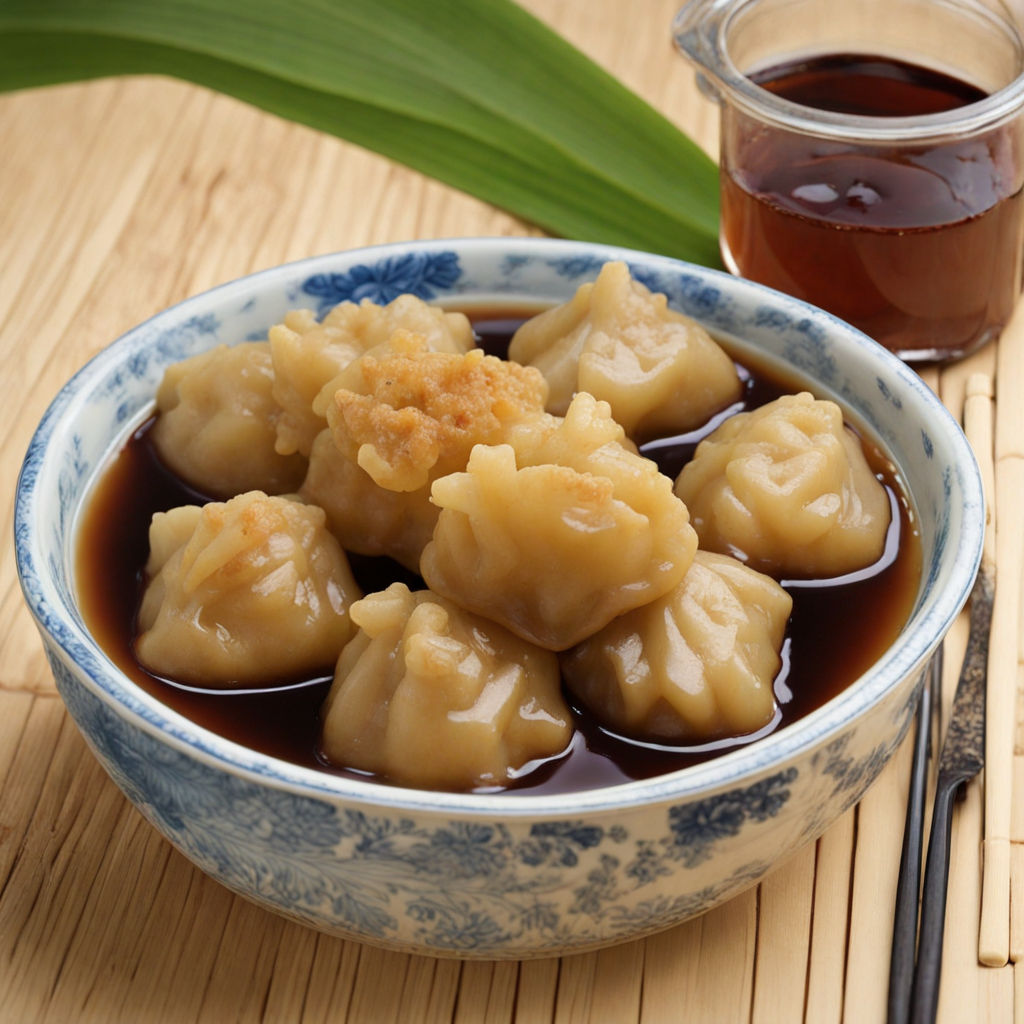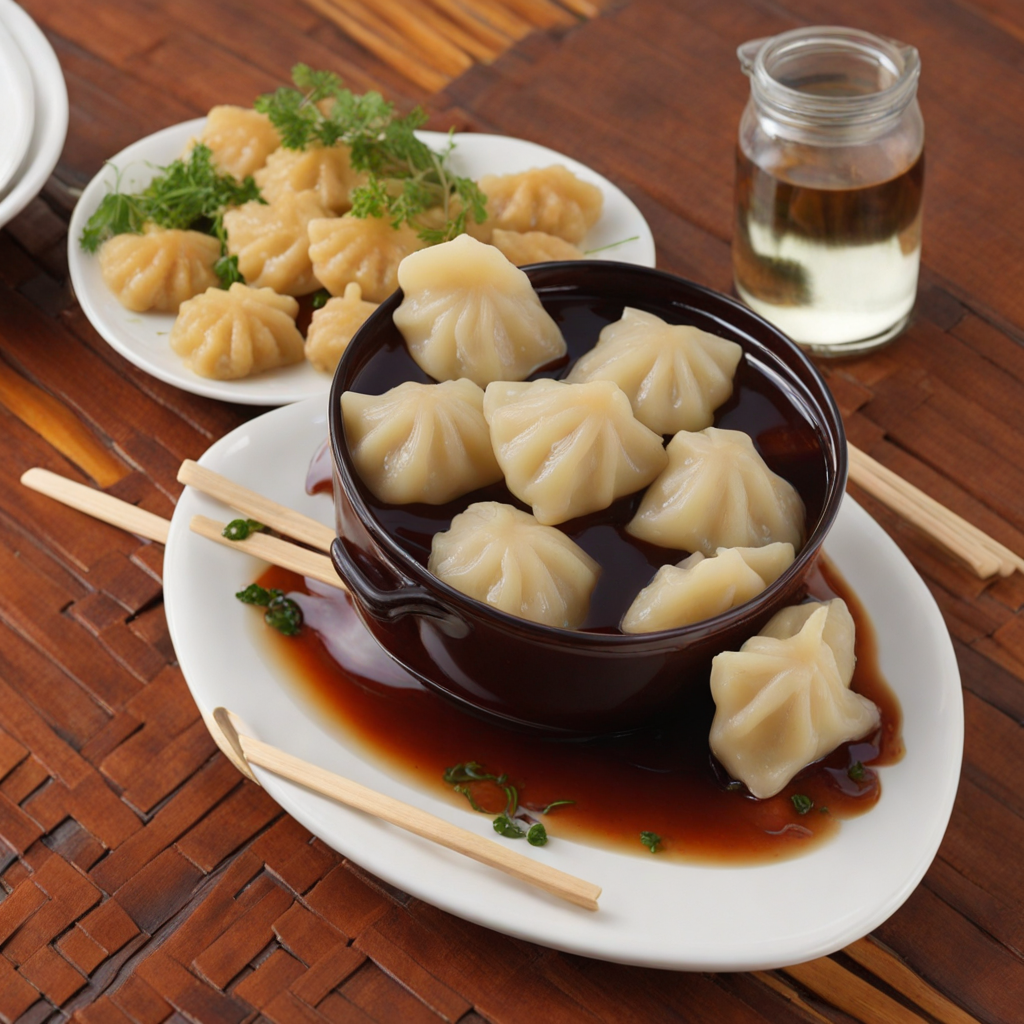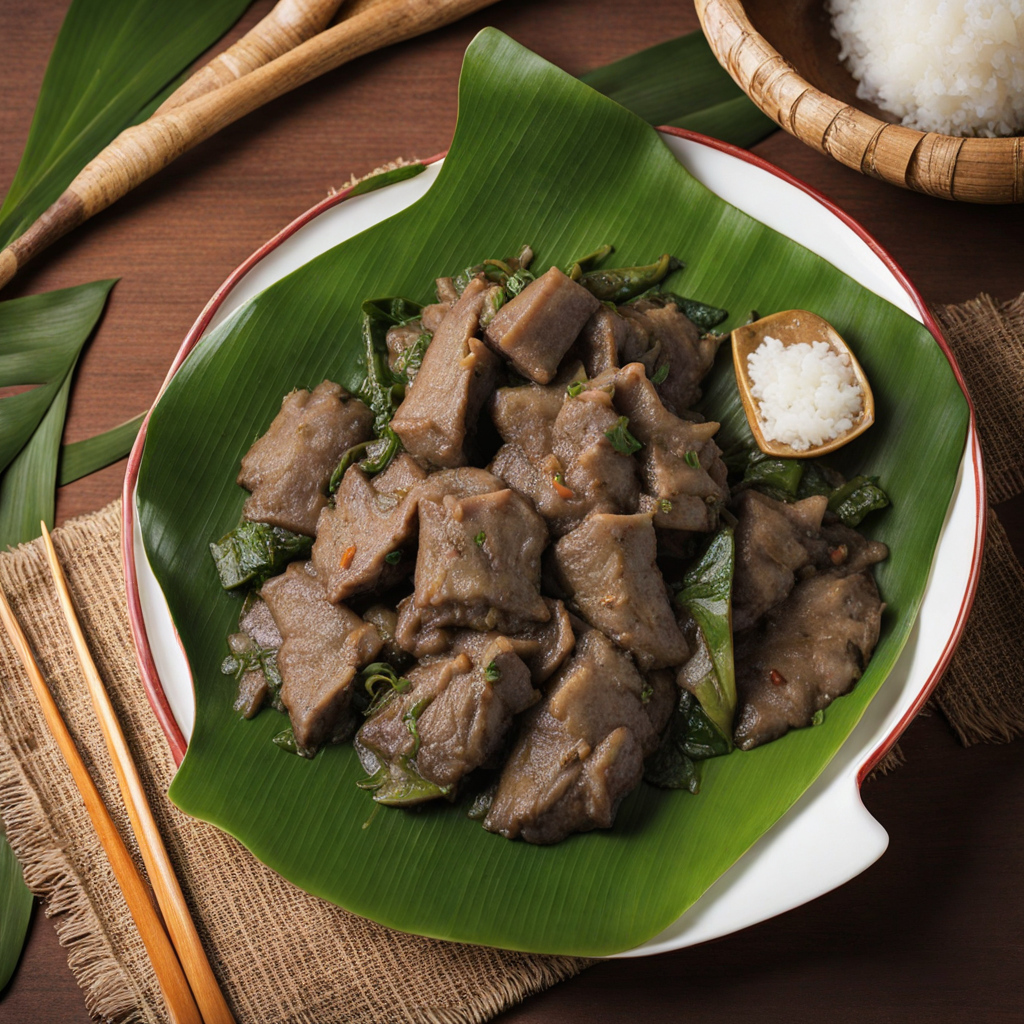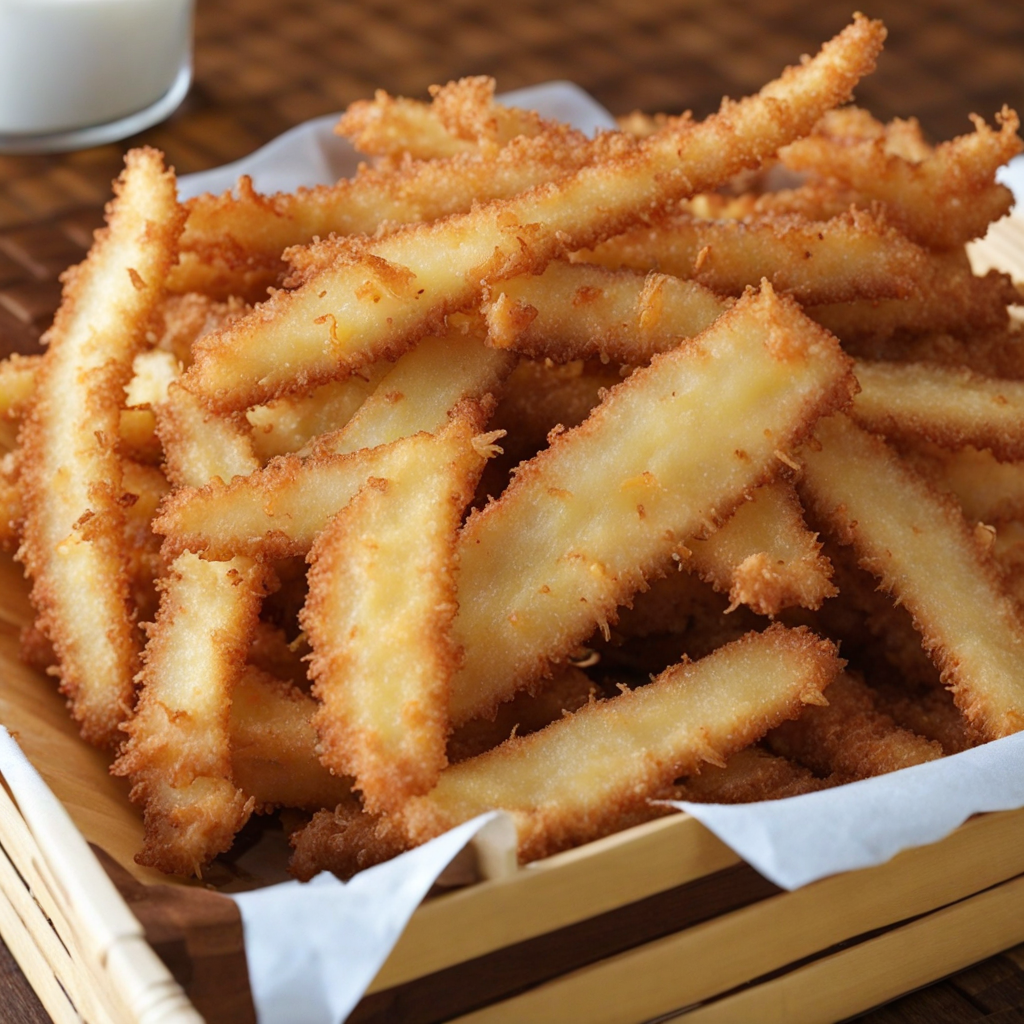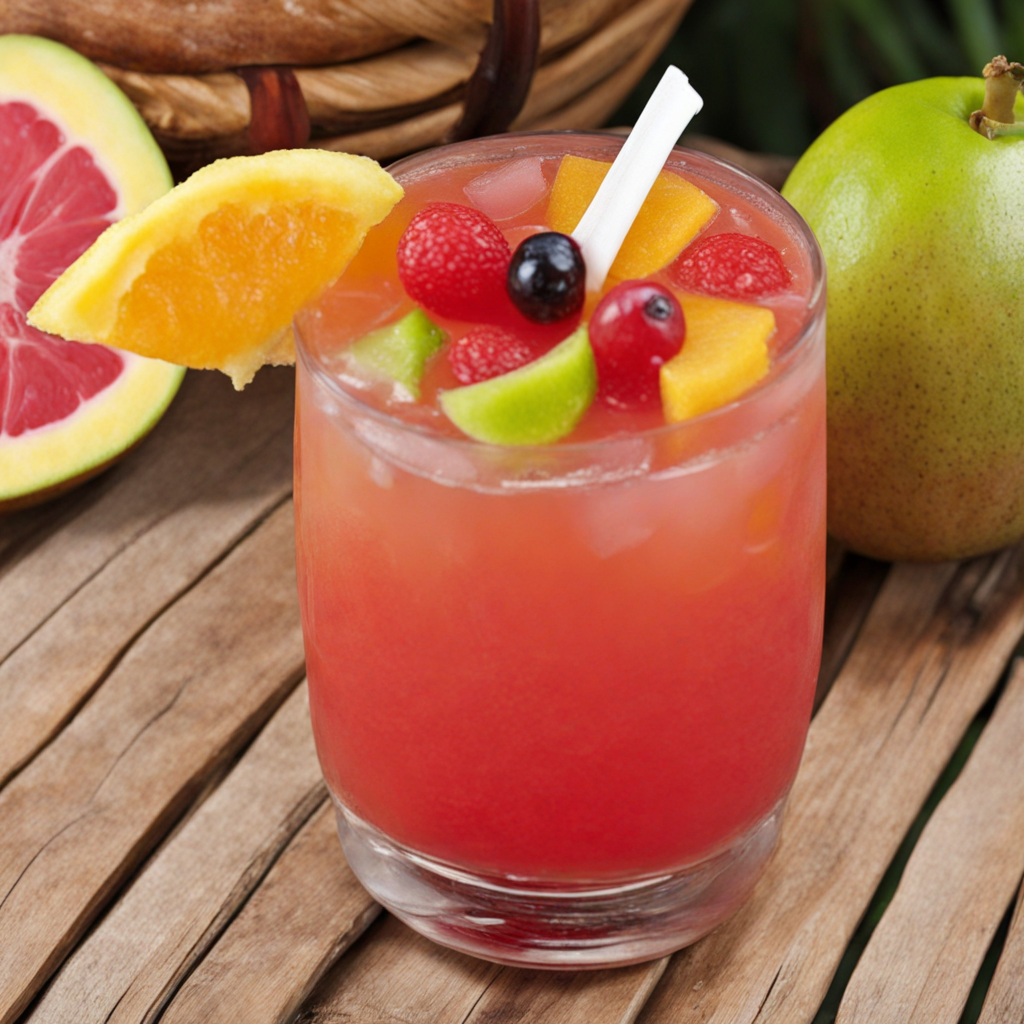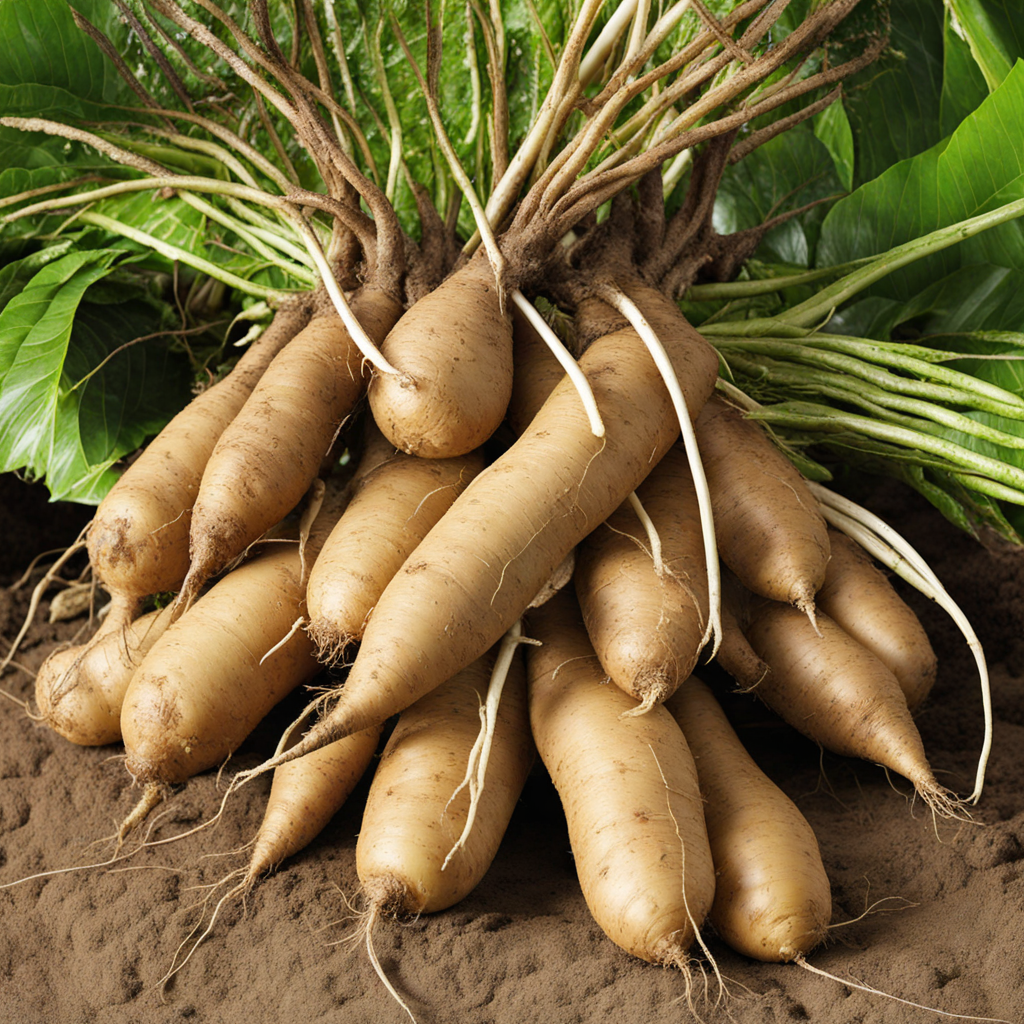Faikakai Topai
Faikakai Topai is a delightful Tongan delicacy that showcases the vibrant flavors and culinary heritage of the islands. This dish is primarily made from a mixture of finely grated cassava, which is a starchy root vegetable, combined with coconut cream and sugar. The ingredients are expertly blended to create a smooth, batter-like consistency that is both sweet and slightly nutty. The combination of the creamy coconut and the natural sweetness of the cassava results in a rich taste that is comforting and satisfying, making it a perfect treat for special occasions or everyday indulgence. The preparation of Faikakai Topai involves steaming the mixture in banana leaves, which not only adds to the flavor but also gives the dish a unique texture. As it cooks, the batter transforms into a soft, pudding-like consistency, with a slightly crisp exterior that provides a delightful contrast. The use of banana leaves not only enhances the taste but also embodies the traditional cooking methods of Tonga, giving it an authentic touch that transports you to the heart of the islands with every bite. Often enjoyed warm, Faikakai Topai can be served as a dessert or a sweet snack, offering a taste of Tongan culture that is both unique and memorable. The combination of the rich coconut cream and the earthy, sweet cassava makes it a delightful experience for the palate, inviting you to savor the flavors of Tonga. With its simple yet profound ingredients, Faikakai Topai is a perfect representation of the island's culinary philosophy, celebrating the beauty of natural flavors and the joy of sharing food with loved ones.
How It Became This Dish
The History of Faikakai Topai: A Culinary Treasure of Tonga Origin and Ingredients Faikakai Topai, a beloved Tongan delicacy, is a type of sweet dumpling made from a blend of flour, coconut cream, and sugar, often steamed or boiled to achieve a soft, doughy texture. The dish is typically flavored with ripe bananas or taro and is sometimes garnished with grated coconut or served with a drizzle of syrup. Its origins can be traced back to the rich agricultural practices and traditional cooking methods of the Polynesian islands, where coconuts, taro, and bananas were staple ingredients. The Tongan archipelago, consisting of over 170 islands, has a long history of agricultural abundance, largely due to its fertile volcanic soil and favorable climate. The native Tongan people cultivated a variety of crops, and the introduction of coconuts by early settlers turned them into a significant part of the Tongan diet. The use of coconut in Faikakai Topai reflects the broader culinary practices of the region, where coconut is revered not only for its nutritional value but also for its versatility in both sweet and savory dishes. Cultural Significance Faikakai Topai holds a special place in Tongan culture, often enjoyed during family gatherings, celebrations, and communal feasts known as "feasts of love" or "faka'apa'apa." These events are characterized by the sharing of food, which is a fundamental aspect of Tongan hospitality and social bonding. The preparation and consumption of Faikakai Topai foster a sense of community, as families come together to create this dish, often passing down recipes and techniques through generations. Moreover, Faikakai Topai is more than just food; it symbolizes the Tongan values of sharing and generosity. In Tongan culture, food is considered a gift, and presenting Faikakai Topai to guests is a way of honoring them. The dish's sweetness and comforting texture evoke feelings of home and belonging, making it a cherished part of Tongan identity. Development Over Time As with many traditional dishes, the preparation and presentation of Faikakai Topai have evolved over the years. In ancient times, Tongan cuisine relied heavily on the resources available in the islands, with people utilizing local ingredients and traditional cooking methods. Faikakai Topai was likely prepared using simple tools and techniques, reflecting the ingenuity of the Tongan people in creating delicious meals from basic ingredients. With the arrival of European explorers and settlers in the 17th and 18th centuries, Tonga experienced significant cultural exchanges that influenced its cuisine. New cooking techniques, ingredients, and flavor profiles were introduced, allowing Tongan dishes, including Faikakai Topai, to adapt and evolve. However, despite these influences, the core essence of Faikakai Topai remained rooted in traditional practices, ensuring its continued relevance in Tongan culinary heritage. In the 20th century, as Tongan society began to modernize, Faikakai Topai also underwent changes. With the advent of commercial agriculture and the availability of pre-packaged ingredients, some families began to streamline the preparation of Faikakai Topai. However, many still hold onto traditional methods, recognizing the importance of maintaining cultural practices. This duality showcases a broader trend in Tongan society: the balance between modern influences and the preservation of cultural heritage. Faikakai Topai in Contemporary Tongan Society Today, Faikakai Topai remains a staple in Tongan households and is often featured at cultural events, festivals, and church gatherings. It is not uncommon to see the dish being served alongside other traditional Tongan foods such as ‘ota ‘ika (raw fish salad) and lu (taro leaves wrapped around meat). The dish has also found its way into the diaspora, with Tongan communities around the world continuing to prepare and share Faikakai Topai as a means of staying connected to their roots. Social media and global culinary trends have further influenced the appreciation of Faikakai Topai, bringing it to the attention of a broader audience. As Tongan chefs and home cooks share their recipes and techniques online, the dish has garnered interest from food enthusiasts outside of Tonga. This newfound exposure has led to variations of Faikakai Topai, with some experimenting with flavors, fillings, and cooking methods, creating a fusion of traditional and contemporary Tongan cuisine. Conclusion Faikakai Topai is more than just a delicious Tongan dumpling; it is a representation of the rich agricultural heritage, cultural significance, and evolving culinary traditions of Tonga. As it continues to be enjoyed in homes and communities, Faikakai Topai serves as a reminder of the importance of food as a means of connection, celebration, and cultural identity. In a world that is increasingly globalized, this dish stands as a testament to the resilience of Tongan culture and the enduring power of food to bring people together. In essence, Faikakai Topai encapsulates the spirit of Tonga – a blend of tradition, community, and the celebration of local flavors that nourishes both the body and the soul.
You may like
Discover local flavors from Tonga


